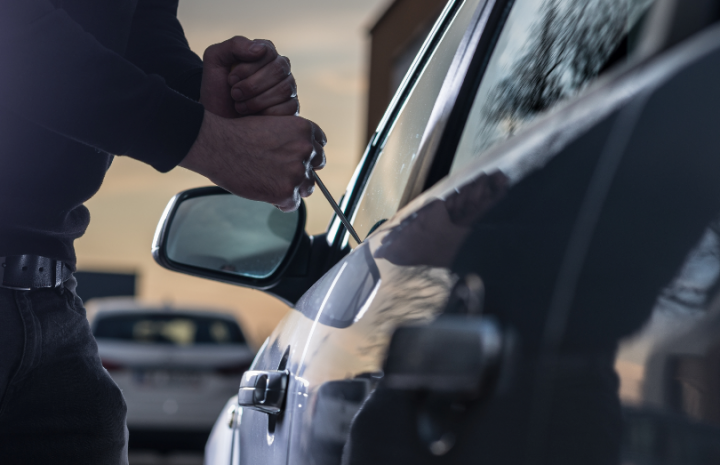If two more attorneys general added their names to the letter, it would be half the country. That’s how many state representatives are up at arms gains the Hyundai and Kia thefts that are on the rise.
Violent crime in America is on the decline, which is excellent news, but motor vehicle theft is on the rise. From the phenomenon of stolen catalytic converters to the latest spree of Kia and Hyundai vehicles being stolen, it seems like car thieves are busier than ever. Is there something that can be done about these thefts?
What should have been done has caused a call to action
For several years, every vehicle sold in America has come with an engine immobilizer device that won’t allow the vehicle to start unless a key is present. These anti-theft immobilizers keep most vehicles from being stolen, but for some reason, Kia and Hyundai models that aren’t very old did not include these items. All other car manufacturers include them, but not Kia and Hyundai. To make matters worse, the same vehicles sold in Canada and Europe were equipped with these immobilizers, which makes most of us scratch our heads.
The call to action from 23 attorneys general is to urge Hyundai Motor Company, the parent company of both Hyundai and Kia, to act much faster than they have already. The lack of anti-theft immobilizers was an oversight on the part of the automaker and should have been met with a much swifter response. Although the current action by the company is positive news, it’s not enough, according to the 23 attorneys general that signed the letter in support of much faster and more decisive action.
What has Hyundai Motor Company done to solve this problem?
In response to the extremely high number of Hyundai and Kia thefts, Hyundai Motor Company has recently begun changes to the impacted vehicles. These changes include placing warning stickers in the windows to alert would-be thieves that the vehicle now has an anti-theft immobilizer, longer alarms that sound for a full minute compared to thirty seconds previously, and software upgrades to prevent the vehicle from starting when the thief utilizes a method popularized on TikTok.
Many believe the increased number of thefts of these two vehicle brands is mostly due to the “TikTok Challenge,” in which a user showed viewers how quickly and easily they could break in and steal one of these vehicles.
So far, Hyundai and Kia have contacted more than a million customers that could be victims of this type of theft with the software update information. The brands have also shipped tens of thousands of physical anti-theft steering wheel locks to law enforcement agencies across the country to distribute them to customers.
All of these actions are positive steps, but some of the impacted vehicles can’t accept the software upgrade. The letter from the attorneys general asks Hyundai and Kia to offer free alternative protective measures for these owners.
Which vehicles are impacted by these potential thefts?
Kia models produced from 2011 to 2021 and Hyundai models made from 2015 to 2021 lack the electronic immobilizers to keep a vehicle from driving away without the key. The electronic immobilizers make vehicles more difficult to hot wire, which makes them much less of a theft risk, which is good news for insurance rates.
Unfortunately, some insurance companies have already dropped some older Hyundai and Kia vehicles due to these potential thefts. Both Progressive and State Farm have done this in some major cities, which leaves owners of these vehicles setting for insurance carriers they might not otherwise choose.
Who is at fault?
It’s easy to say the initial blame goes to Hyundai Motor Company for leaving out the electronic anti-theft immobilizers in the first place. Had these items been in place, there wouldn’t be as many of these vehicles stolen as there are. Another place to blame is TikTok for allowing the post showing viewers how to steal these vehicles and challenging impressionable young minds into doing so. Of course, the lion’s share of blame should go to each thief that has stolen one of these vehicles; they aren’t victims, they are the perpetrators of the crime.
Will Hyundai Motor Company take a more rapid approach to solve this problem? How will Hyundai and Kia owners feel safe with their vehicles? Will thieves stop taking these cars? We want answers, but none are coming as quickly as we’d like.
This post may contain affiliate links. Meaning a commission is given should you decide to make a purchase through these links, at no cost to you. All products shown are researched and tested to give an accurate review for you.

